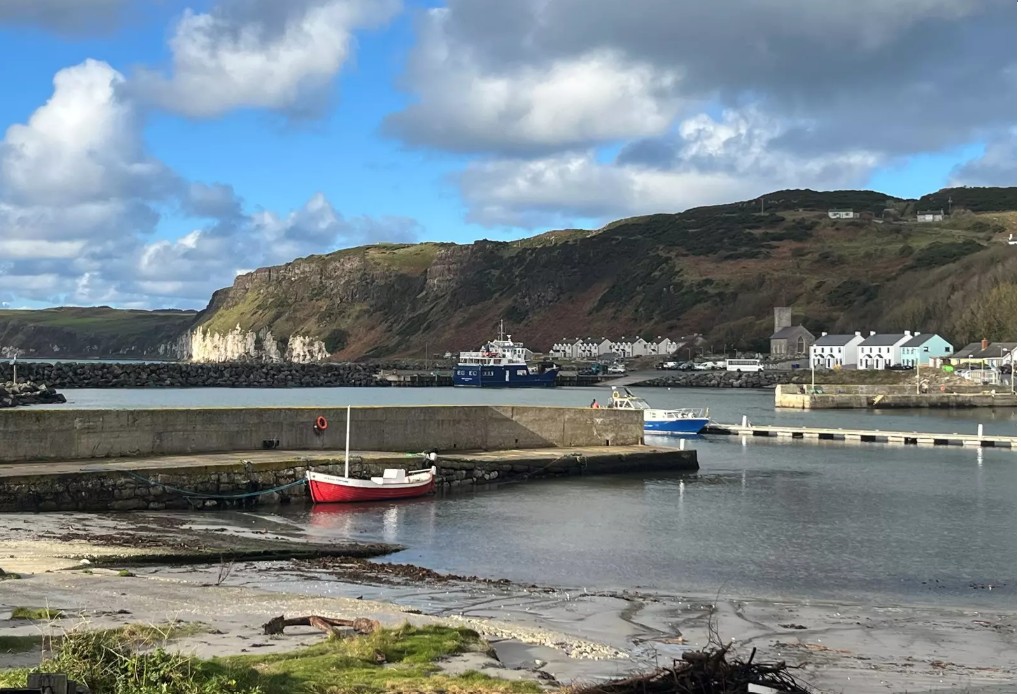Future Island-Island – Green Digital Transition for Sustainable Tourism
"Through NI-HPC, we have sustainably researched, tested, and learned how Gaussian Splatting enables the efficient and accurate creation of digital twins. This knowledge extends to their integration within industry pipelines and their impact on education and tourism by delivering authentic digital experiences."
Henry Melki, Lecturer in Animation and VFX, University of Ulster.
The Future Island-Island project is part of a global movement towards sustainability, aiming to transition away from a carbon-based economy.
It’s an innovative initiative funded by the Arts and Humanities Research Council (AHRC) with a budget of £4.625 million. It focuses on using design-led research to tackle climate challenges, including net-zero goals. The project is a collaboration between Ulster University, Queen’s University, Glasgow School of Art, the University of the Arts London, and industry partners, combining academic and practical expertise to develop real-world solutions.
Rathlin Island
The Future Island-Island project aims to create a digital prototype for sustainable tourism and waste management on Rathlin Island. This initiative could serve as a model for other regions with similar challenges. By integrating digital technology, it promotes environmental education and provides innovative solutions for resource management in remote, ecologically sensitive areas. In the long term, it could accelerate the global shift toward a sustainable, circular economy by offering scalable, replicable models for communities worldwide.

Innovative Digital Approach for Rathlin Island
One of the most innovative aspects of the project is the Green Digital Transition work package, which focuses on supporting sustainable tourism on Rathlin Island through digital design and technology. The island, renowned for its natural beauty, faces challenges related to tourism, waste, and resource management. The goal is to develop a prototype digital solution to serve as a model for future locations dealing with similar sustainability concerns.
The work package focuses on the following areas:
- Digital Twins and Immersive Technology: The project utilises immersive technology to create digital twins of key locations on Rathlin Island. These virtual replicas allow users to explore hard-to-reach areas of the island and its seabed, promoting education about its natural environment and heritage without physically impacting the ecosystem.
- Community Collaboration: Working closely with the Rathlin Island community, the project is co-designing digital experiences that reflect the island’s unique topology, cultural heritage, and environmental challenges.
- Plastic Waste Education: The project also aims to raise awareness about the overconsumption and disposal of plastic products. Through gamified digital experiences, users are educated on the environmental consequences of plastic waste, promoting behavioral changes toward more sustainable practices.
Technological Innovation
To ensure the successful implementation of these initiatives, the project leverages advanced technologies, including the use of Gaussian Splat scans on the Northern Ireland High-Performance Computing (NI-HPC) platform. This cutting-edge technology enables the creation of digital twins for locations and artefacts, offering a sustainable and efficient means to capture and replicate real-world environments in virtual space.
By creating an authentic digital experience, the project allows users to engage with the island’s heritage and environment while minimizing the impact on its delicate wildlife and ecosystems.
What next?
The Future Island-Island project is an exemplary case of how design, technology, and community engagement can come together to address the challenges of sustainability, waste management, and tourism. By using immersive digital technologies, the project is not only promoting sustainable practices but also enabling a deeper, more educational connection to the natural world. As the green transition continues to unfold globally, initiatives like Future Island-Island will play a crucial role in shaping a sustainable future.
